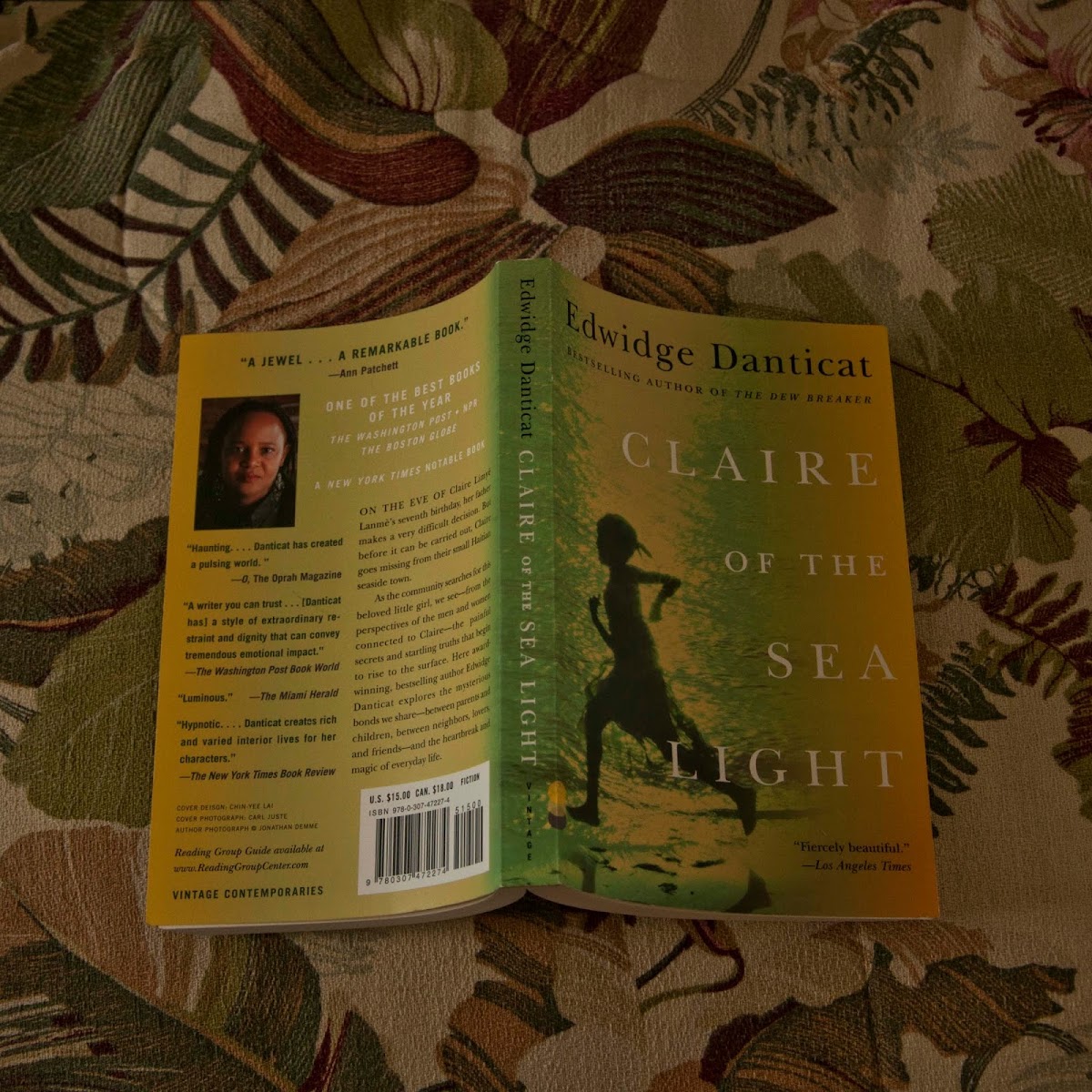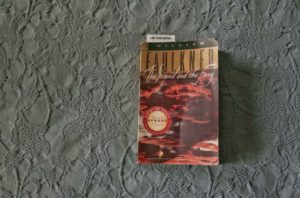The story begins on a morning of mourning and celebration. A fisherman’s life has ended in nature’s spectacular performance on the sea. But it is also the morning “Claire Limyè Lanmè Faustin turned seven,” and also the seventh anniversary of the day her mother, Claire Narcis took her last breath. In that seven is considered a lucky number one can say it worked in Claire’s favor this time around; death left her scanty family alone. As he stood watching the “freak wave” which measured “between ten and twelve feet high,” Nozias, Claire’s only parent, realized that his friend’s life had been claimed and in the same instance understood that his had been spared merely because he “slept in longer than usual,” because he had not been able to sleep, consumed by worries of the possibly unfavorable conditions his daughter would endure should he die before she could take care of herself. It were these worries that saved his life. In the apprehension of what could have been, Nozias rushed home and told his little girl; “woke up earlier and I would have been there.” And to have been there is to have been gone. Caleb, his good friend, was there and he left behind a wife who suffered from elephantiasis and could only communicate through gestures.
A flower’s life is a short one and what is Ville Rose if not an abstract flower surrounded by salt water. Is life not as fragile as the rose? Does it not wilt, droop, fall, and decompose? The difference being that one does so in a shorter time than the other. The most obvious contrast of the novel is life and death, and yet they are so entwined that they appear to be one and the same. And so when Caleb dies on Claire’s seventh year in a “freak wave,” or when Rose, Madame Gaëlle’s only daughter dies on her fourth birthday in another freakish accident, albeit man-made, I allow myself to use the metaphor of the wilting flower for the wilting human, the former minuscule in its time frame, the later expansive. In a small town as Ville Rose everything and everyone is more obviously connected so that the intricacies and nuances of life are the more apparent——if a father is dead in one household, a mother dies in another, or a son dies living behind both parents. Many die as many are born: winter dies for spring and spring for summer and summer for winter. The influx and flux of life. An everyday occurrence. The irony of such existence is expressed in the undertaker, Albert Vincent, being made mayor of the town. Here, one person was enough for the position, but is not it the same if there were two people? We think of angels of mercy and of death, is it any different if it is one and the same, responding only differently to our states of existence? The dead lived, and the living would die hence the mayor as the caretaker.
The novel is rich with superstition, but superstition is what we make up and narrate to each other to explain the question marks behind the things we do not understand. Superstition helps us form a bridge with the things we need to learn to accept in order to move on. A guide to explain and help us through the rough landscape of life. For instance, “to most people, Claire Limyè Lanmè was a revenan, a child who had entered the world just as her mother was leaving it. And if these types of children are not closely watched, they can easily follow their mothers into the other world.” For this reason Claire went to live with her mother’s relative until she was three. It must have been a relief for Nozias too, who did not know what to do with the infant and who needed time to mourn his daughter’s mother. The people of Ville Rose also said that “when the mother died and the child survived and the mother had shown no sign of sickness before, people assumed that a battle had taken place and the one with the stronger will had won.” To this Claire’s father like to think that his wife chose to say adieu to the world in order that her namesake would live. In terms of the town’s beliefs, it is survival of the fittest. Someone must win while another lose. But what is winning? Is it winning to be alive when one does not even know what it means to be dead? So who is to say that the younger Claire was stronger than the older Claire? And yet it could be so. It is as true as one believes it to be. So Nozias’ version is true, too.
On the night of Claire’s birth and Claire’s death, “the sea had risen a few feet and was becoming agitated, pushing larger waves towards the shore. A few of the townspeople were cautiously lurching about, most with their backs to the wind, as they made their way home from work, or the fields.” The present is a déjà vu of her first day. It almost seem like it had happened before. And it had. Life comes and life goes on the same days very often. The sea had been agitated before Claire’s seventh year and I dare say it has been so even before she was born, and before her mother was born. The sea has its temperaments––there are days of calmness and days of anguish. It cannot be personal then? Is this what Danticat is suggesting? As the novel comes to an end, Claire is left running back to an old home which she may shortly vacate for a new one. Her thoughts are full of the man the sea had claimed and washed up the shore. She runs to also see “her father and Madame Gaëlle, whose own sorrows could have nearly drown them.” The reflection that the emotions gathered by our aches have the capacity of drowning us, just like the sea, makes one appear like the island. But, like a woman’s body pushes out life, so the sea which harbors lives, pushes out death. The question then is what does it mean to live and die?
—
Jane



